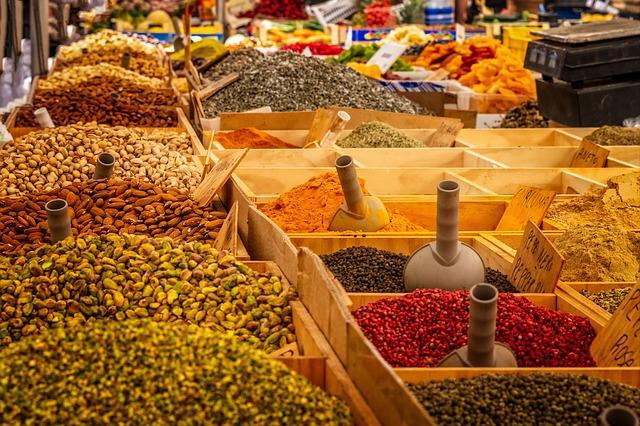Adding spices and high-fat meals

Adding spices and high-fat meals
When we consume certain foods and supplements frequently, we don't even realise how much of an impact these products have on our bodies! A recent study by researchers at Penn State shows that seasoning high-fat meals with selected types of herbs reduces their negative effects of consumption!
So, what should you season with to make your meal less fatty?
High-fat meals serve neither the health nor the proper functioning of the digestive system, including digestive functions. The high fat content of the meal you eat increases your blood triglyceride levels (triglycerides are fat molecules made up of long chains of fatty acids and glycerol). Your body needs triglycerides, using them as energy, but in too large an amount it deposits them as stored fat.
If our diet is rich in high-fat meals, our blood triglyceride levels are bound to be high! Does this have any effect on our functioning?
Impact of a high-fat diet
The worst effects of too high blood triglyceride levels are overweight, obesity and cardiovascular disease, including atherosclerosis.
For many people, the cause of elevated triglyceride levels is overweight, physical inactivity, smoking, alcohol abuse or too many carbohydrates in the diet - 60% of calories or more. It can be seen that high triglyceride levels are linked to lifestyle (past illnesses or genetic predisposition can also be a cause).
Key recommendations to reduce the amount of fat particles in the blood:
1. Proper diet,
2. Physical activity,
3. Restriction of fat and sugar in the diet,
4. Weight control,
5. Smoking cessation
6. Limiting alcohol consumption (to one drink a day for women and two drinks a day for men).
What else can we do with unnecessary fat - the latest research findings
The study was carried out among men who were overweight but without any health conditions, aged 30-65 years. The study used three types of meals: curry chicken, Italian bread with herbs and cinnamon biscuits, to which 2 tablespoons of spices were added. The control meals, on the other hand, consisted of the same dishes but without the addition of spices. The study participants were asked to eat the given dishes.
Blood was then taken from the participants every 30 minutes after eating the meals over a period of three hours to see if the spices had any effect on our bodies.
What were the results?
It turned out that in meals seasoned with the herbs with the highest antioxidant activity (highest concentration of antioxidants), very positive effects were noticed in the body. The spiced meals used were rosemary, oregano, cinnamon, turmeric, black pepper, cloves, garlic and paprika.
When the meal contained a mixture of spices, antioxidant activity in the blood was 13% higher, insulin secretion was reduced by up to 20% and blood triglyceride levels by 30%!
Spices reduce oxidative stress, which many researchers believe is the cause of heart disease, arthritis and diabetes. Spices, being a source of antioxidants, play an important role in reducing oxidative stress and thus lowering the risk of chronic diseases. However, the dose of antioxidants must be the same as the amount found in a glass of red wine or approx. 40 g of dark chocolate. In addition, the study noted that adding two tablespoons of spices to meals did not cause stomach discomfort.
Tip
If you don't experience any discomfort after eating spicy, seasoned dishes, it's really worth enriching the taste of your dishes with a variety of herbs. This will bring not only taste benefits, but also health benefits.
I recommend:
Copenhagen diet menu
- Industry
- Art
- Causes
- Crafts
- Dance
- Drinks
- Film
- Fitness
- Food
- Spiele
- Gardening
- Health
- Home
- Literature
- Music
- Networking
- Other
- Party
- Religion
- Shopping
- Sports
- Theater
- Wellness
- News


